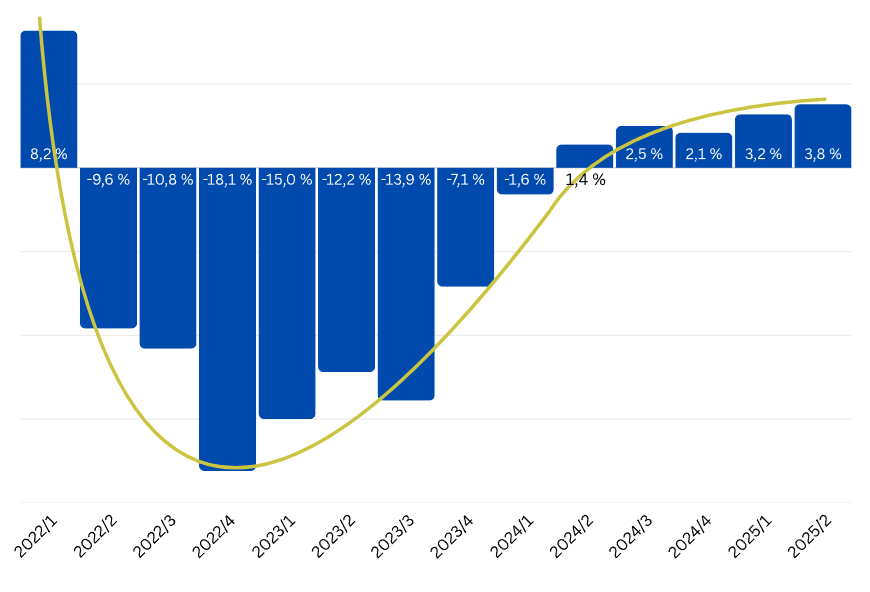“The upswing is here”, writes bevh above a report on online retail spending in Germany. According to the industry association, consumers spent 39.84 billion euros on products online in the first half of this year. This marks a 3.5 percent increase compared to the same period last year. The growth was even stronger in the second quarter.
Bundesverband E-Commerce und Versandhandel Deutschland, or bevh for short, has published half-year figures on online spending in Germany. After a period of rapid growth during the COVID-19 pandemic, online product spending decreased by 8.8 percent in 2022 and 11.8 percent in 2023. However, last year saw a modest increase of 1.1 percent.
Upward trend
The upward trend continues, as the new figures reveal a half-year growth of 3.5 percent, resulting from a 3.2 percent increase in the first quarter and a 3.8 percent increase in the second quarter:

Online spending on services grew even more significantly, with a 4.4 percent increase to 3.9 billion euros. These German ecommerce figures, however, are not adjusted for inflation, which is estimated to be around 2 percent. Exact inflation figures are yet to be published.
Spending growth is stronger than inflation
“Germany’s shopping mood is slowly but steadily returning”, observes Martin Groß-Albenhausen, Deputy Director of bevh. “This benefits online retail the most, as it reaches people best through social media, apps, and AI in their digital everyday life.” The growth is mostly benefiting marketplaces (plus 5.9 percent according to bevh), including market leader Amazon. “Not all vendors are participating in this positive trend”, states Groß-Albenhausen.
Smaller sellers do not benefit
The bevh figures align with the latest forecast from the German Retail Association (HDE), which has projected a 4 percent growth for online retail spending this year. A recent survey by Uptain found that smaller online businesses in Germany, Austria, and Switzerland are not benefiting from the restored growth in online spending in the DACH region. On the contrary, their revenues are actually declining.





